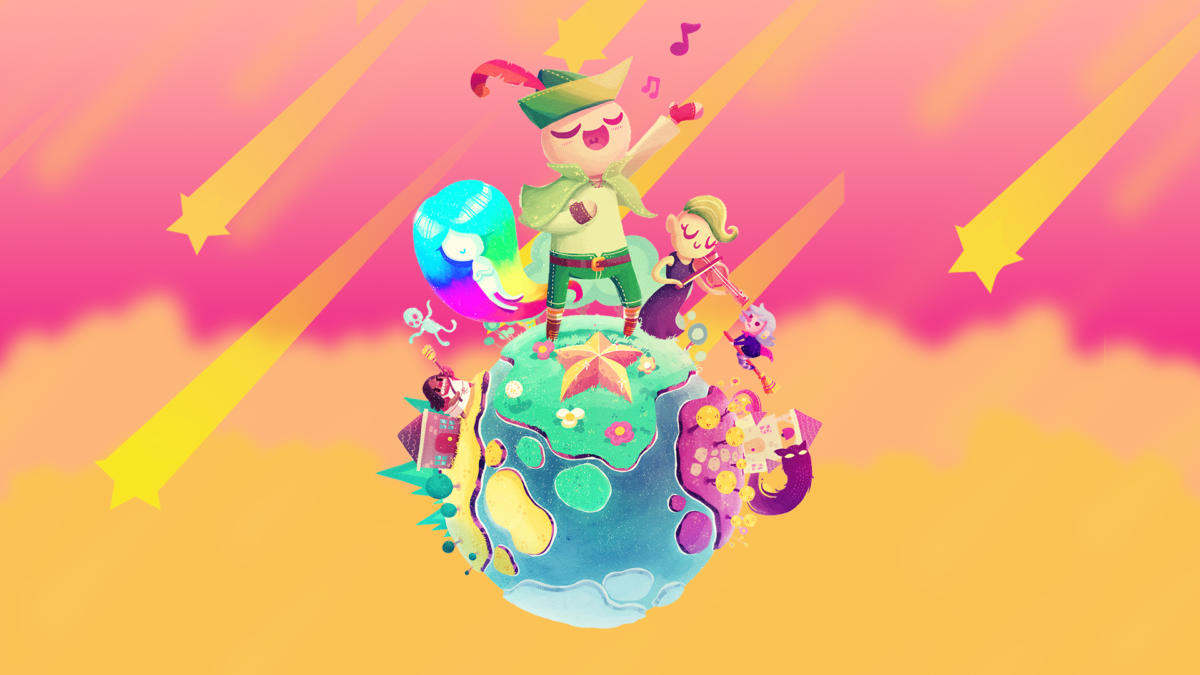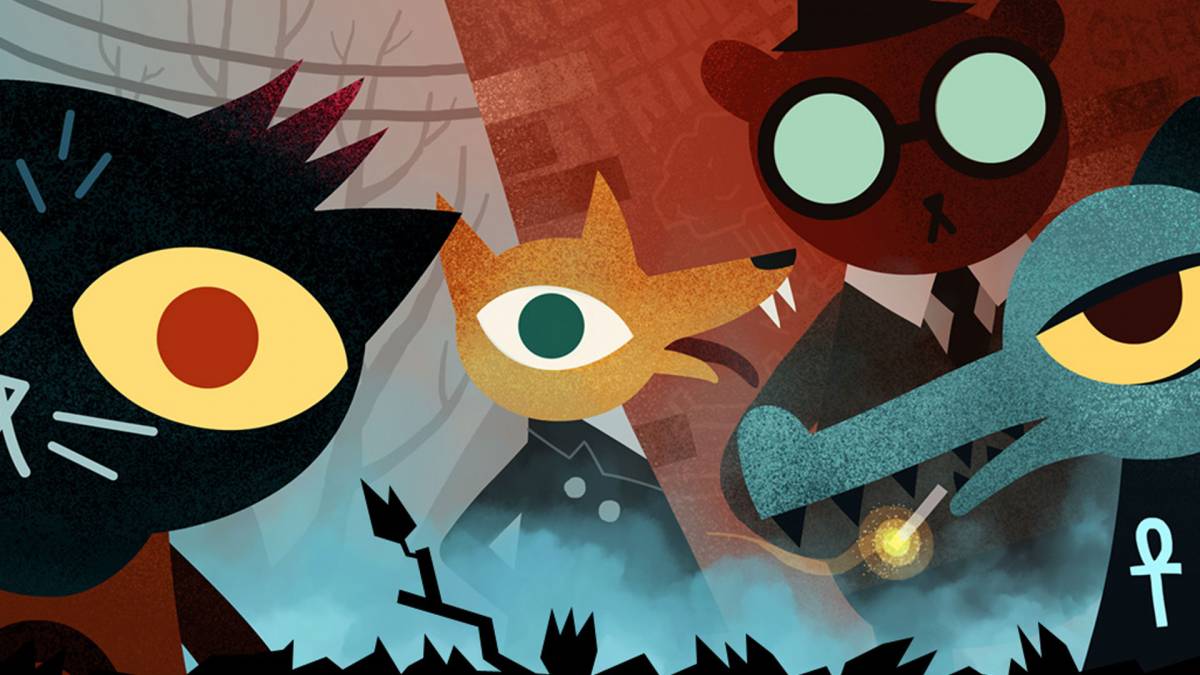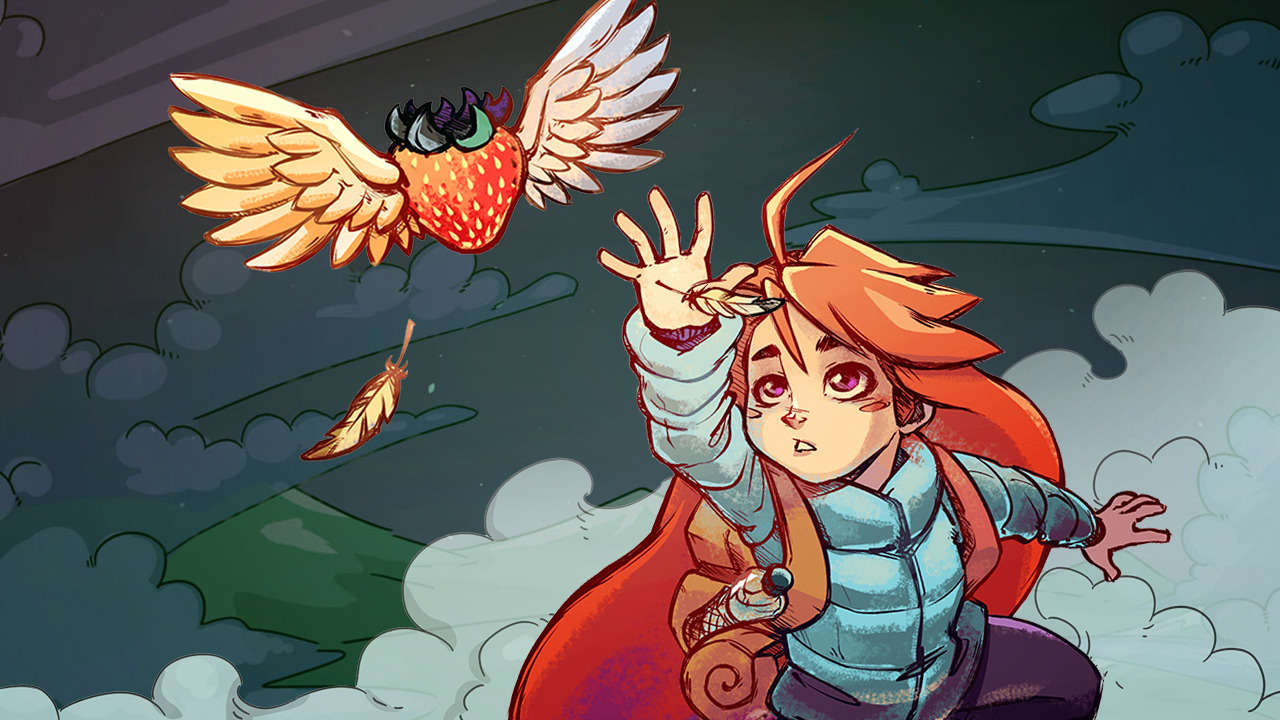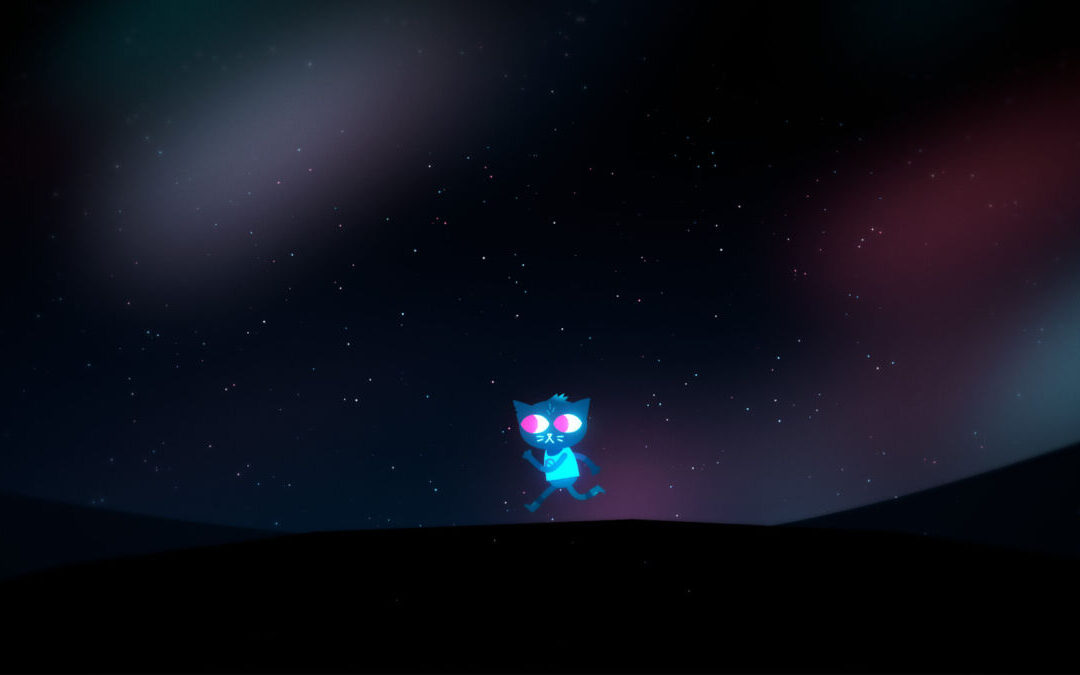The philosopher Edmund Burke once said, “Never despair, but if you do, work on in despair.” It’s a complicated sentiment, and one that modern society tends to shy away from in the era of self-care and ruthless individualism — one should resist despair and hopelessness as much as possible, sure, but sometimes the Big Sadness is unavoidable. And when we find ourselves in the depths of despair, Burke says, we must work on. Admit our despair, acknowledge its presence, and continue on anyway. Only through openly recognizing one’s sadness and continuing on in life regardless can one hope for growth.
Anyway, 2020’s sure been a weird one, huh? As reality continues to disappoint, many people are turning to the escapism of entertainment, particularly the interactive narratives of video games. But other than a break from doomscrolling on Twitter, what insight into our situation can we gain from the narratives of our favorite games? These four games are all about Burke’s notion of Working On In Despair. Each one tackles a narrative of cosmic hopelessness, individual responsibility, and what to do when the world feels insurmountable. So in-between protesting, calling your representatives, and fighting for a better world for everyone, turn to these four recent games for narratives about fighting back despair.
1. Wandersong

Developer: Greg Lobanov
Publisher: Humble Bundle
Wandersong, created by Greg Lobanov in 2018, is about a cartoon bard traveling the world to unlock a magical song that will stop this world’s god from destroying it and starting over. It’s a fairly conventional set-up for a game, and while Wandersong’s construction-paper-cutout style and sing-to-solve puzzle system are unique in their own right, what really sets Wandersong apart is how it deals with the existential ramifications of its premise.
Whereas lots of video games are about saving the world, (and plenty of JRPGS walk you through finding and killing God), Wandersong takes the time to examine what it means to be living in a world that’s on a deadline. Whereas your bard character has a typically cheerful, everything-will-work-out positivity, your main companion, Miriam the easily-frustrated witch, has no such rosy view of the world, and acts as a voice of, perhaps not reason, per se, but grim realism. Goofy cartoon characters express fear and reservations about their fate. People react selfishly to impending doom.
Your heroic little bard doesn’t just coast through every situation on a freight train of positivity, though. At certain points in the game, The Bard expresses profound doubt and worry that he can’t fulfill his quest, and he’s going to fail everyone. A few times, he even tries to give up, and loses his ability to sing, before circumstances thrust him back in the position to choose to do good.
And it is a choice, because Wandersong is very clear about one thing: Fate is not on The Bard’s side. At the beginning of the game, you are explicitly told you are not the Chosen One of legends. But The Bard still tries anyway. You’re told that no one has ever stopped the universe from being wiped out before. But The Bard still tries anyway. You witness other characters giving their all to sabotage you, even when it means they’ll be hurt too. But The Bard still tries anyway, and still endeavors to help those who are trying to hurt him. Wandersong may, at times, seem a little too precious and proud of its own bright-eyed sincerity, but this game is a nonetheless memorable story about doing the right thing simply because it’s right, even if it feels hopeless at times.
2. Night In The Woods

Developer: Infinite Fall
Publisher: Finji
In 2017’s Night in the Woods from Infinite Fall, you play as Mae Borowski, an anthropomorphic cat girl who has returned to her parent’s house in the crumbling former mining town of Possum Springs after dropping out of college. When she gets home, she finds a mystery waiting for her: A severed arm, ghosts, and a mysterious cult are all lurking in the shadows of Possum Springs, and it’s up to Mae and her other disaffected young adults to solve it by walking around town every day, talking to neighbors, and stealing pretzels for a family of baby rats you find in a rotting mascot’s costume.
The premise is typical video game fare, but Night In The Woods succeeds on the power of its dialogue and the compelling cracks in its characters. Mae is a self-described “total trash mammal,” struggling with a number of mental health issues from self-loathing to dissociation. Her friends have their own achingly well-realized scars, the specifics of which are definitely spoilers and should be experienced in the game, but suffice it to say that Night In The Woods’ colorful woodland animal cast is filled with humanity. The game never judges characters for their past experiences, nor does it let characters who do hurtful things get away with it because of their past trauma. Mae’s story is one of courage in the face of abject terror — the decline of America’s rust belt is as profound a horror as any Cthulhu-sized monster emerging from the deep. This game has both.
The gameplay even maps onto Mae’s depression and the rut she finds herself in. Days can quickly blur into one-another in Night In The Woods. Every day you wake up, leave your house, and just…walk around town before coming home again. Is this progress? Is moving through time, being there for the next day’s sunrise, really that big of an achievement? Yes, of course it is. Survival is always progress. There’s no way to “lose” or get a Game Over in Night In The Woods. Time keeps on coming, and you can use it however you want.
But in a world as topsy-turvy as this one, with enemies we can’t see and odds we can’t imagine overcoming, what is there to motivate us to keep fighting? According to Night In The Woods, the answer is, “I don’t know…anything?” There’s an empowering nihilism that runs through the game’s final act, as Ma and her friends, backs against the wall and their mortal lives in danger, turn to the only thing they can depend on: each other, even if it’s only for today. Towards the end of the game, Mae sums up its philosophy: “Nothing is going to save us forever, but a lot of things can save us today.”
Then she wakes up the next day. Just like you, the player. You both keep going.
3. Celeste

Developer: Matt Makes Games
Publisher: Matt Makes Games
The premise for Maddy Thorson and Noel Berry’s 2018 game Celeste is straightforward: Madeline has arrived at the mysterious Celeste mountain with the intention of reaching its summit. Why? Because it’s there. And because she’s decided she has to. As she scales various levels of the mountain, she climbs through an abandoned city, a haunted hotel, a spooky temple and the frequently hostile geography of the mountain itself.
Unlike every other game on the list, Celeste has Game Over screens. Celeste requires finesse and reflexes and patience to complete. Celeste is famously, unambiguously, unapologetically Very Very Hard. Compared often to Super Meat Boy or I Want To Be The Guy, Celeste has a reputation for being a “Masocore” (masochist hardcore) game, wherein by playing you are signing up to essentially toss your character into a meat grinder on infinite repeat. But just because climbing Mt. Celeste is dangerous doesn’t mean the game wants you to fail. Everything in Celeste is calibrated to make its endlessly try-fail-try loop as painless and encouraging as possible. Every death resets you on your current screen immediately, and a comprehensive assist system lets you toggle additional support settings like extra mid-air dashes for when you’re stuck on one particularly puzzling section.
Madeline doesn’t get any special items or extra abilities for most of her journey. She can jump, hold onto and climb walls for a short time, and she gets one mid-air dash. For the majority of your climb, that’s all you have. But the environment keeps changing, adding new gimmicks around every corner, forcing you to stay on your toes and keep thinking about your plan of attack.
But again, even though Mount Celeste is a hostile place, Celeste the game wants you to succeed. The game knows it’s tough. It wants you to succeed anyway. The process of playing Celeste is as follows: Seeing a screen’s layout, thinking “there’s no way I can do this,” you try, get closer than you expected, and think, “maybe I can do this,” and eventually, after some sweating and frustration, you do it. You succeed, go to the next screen, so the new challenge, and think, “there’s no way I can do this.” All the way to the top of the mountain.
In her journey, Madeline repeatedly has to outrun a cruel reflection of herself, a physical manifestation of her self-doubt and defeatist fears telling her to turn around and go home while she still can. This part of Madeline is also talking to you, the player, externalizing your internal struggles and frustration in the face of extreme challenge. And like Madeline, Celeste wants you to surpass this voice of doubt. And even though it won’t make things easy for you, the mountain and the game are cheering you on every step of the way.
4. Heaven Will Be Mine

Developer: Pillow Fight, Worst Girls Games
Publisher: Pillow Fight
Heaven Will Be Mine, released in 2018 by Worst Girl Games and Pillow Fight Games, is a visual novel about three mech (or Ship-Self, as they’re called here) pilots representing three distinct factions in a vague yet endless war for control of the earth and its numerous space colonies after the space race of the 50s went waaaaay farther than it did in our world (video games).
The three factions are as follows: Cradle’s Graces, who want to extend their exploration of the universe and leave Earth behind. Memorial Foundation, who consider the space program a waste of resources and want to bring everyone in space back to Earth. And Celestial Mechanics, which is made up of members of various space colonies that feel they are no longer even recognizably human after years of experimentation, and want to use their advanced technology to push themselves even further in evolution. None of these three factions are interested in compromise.
If all of that sounds dense, that’s because it most definitely is. But you as the player don’t need to worry too much about the factions. Your player characters are three Ship-Self pilots, one from each faction: The Beatific Pluto for Cradle’s Graces, the lone-wolf anime trope Luna-Terra for Memorial Foundation, and the human gremlin Saturn (who stole her Ship-Self while the other two were born and trained to pilot theirs) for Celestial Mechanics. Each of these young women, who have been trained and groomed to be mech pilots all their lives, wants to fight (and also kiss) the other two. In their episodic encounters with each other, you choose who wins and who loses, giving power to their respective faction and leading to one of the game’s three endings.
Through these characters and their branching narrative paths, the story of Heaven Will Be Mine comes into sharper focus: The beliefs of each faction are just a launch point. None of the three endings are purely a picture of a faction gaining power, but of your protagonists chasing after the future they believe in with arms outstretched. These young adults are the ones deciding what they want their world to be, and that’s a scary question with a lot of responsibility, but it’s also thrilling to witness.
Heaven Will Be Mine is about daring to imagine a better future, not just for yourself, but for everyone who comes after you. In each of the game’s three endings, radical changes come about in order to break the endless cycle of conflict that had previously bound the three main characters and their respective vast space armies. For all of the heady concepts the game throws at you about outer space and gravity, it never loses sight of its core belief: that the way the world exists is only because people in power want it that way, and if we want it to be any other way, we will have to take it.
READ NEXT: 15 Best PS4 Indie Games You Should Check Out
Some of the coverage you find on Cultured Vultures contains affiliate links, which provide us with small commissions based on purchases made from visiting our site.

